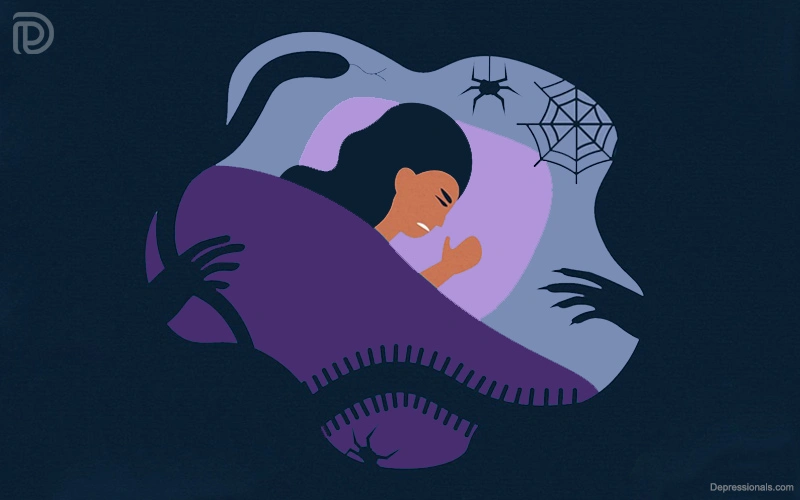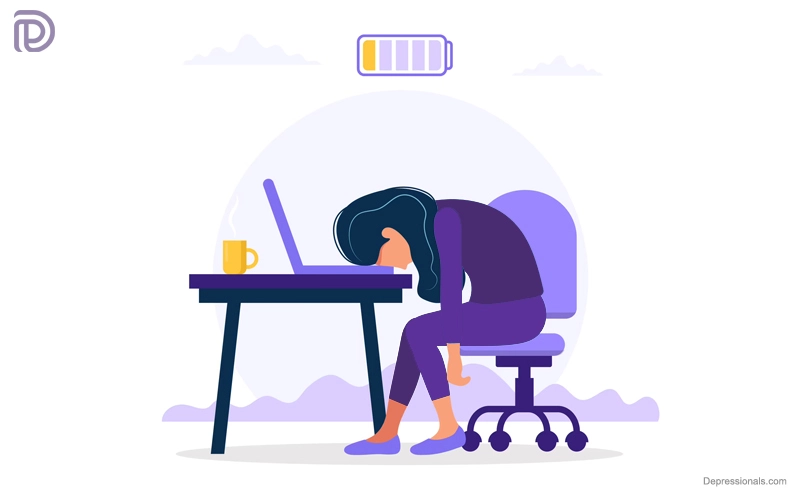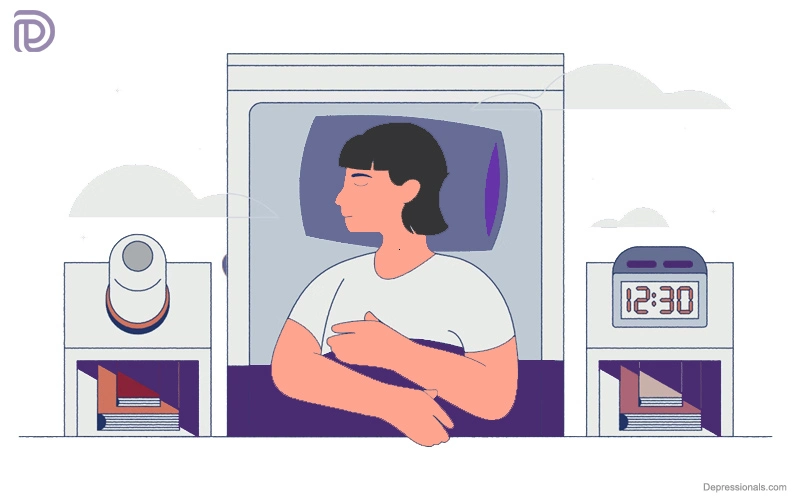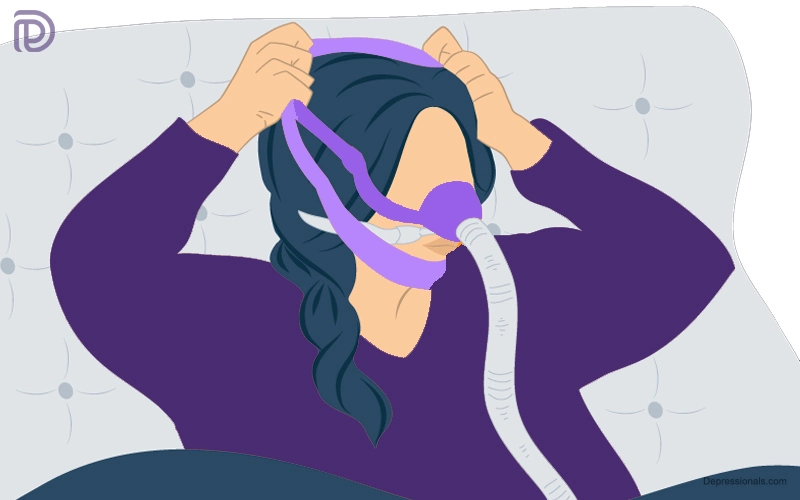There are no tests that are used to identify nightmare disorders on a regular basis. Nightmares are only classified as a disorder if they give you discomfort or prevent you from sleeping sufficiently. Your doctor will examine your medical history as well as your symptoms to identify a nightmare disorder.
What are nightmares?
Nightmares are frightening or distressing dreams. Nightmare themes vary greatly from person to person, but typical ones include being pursued, falling, or feeling lost or imprisoned. Nightmares may make you experience a variety of emotions, such as:
Even after you wake up, you may still be experiencing these feelings.
Nightmares affect people of all ages. However, nightmares are more frequent among youngsters, particularly those under the age of ten. Girls are more prone than boys to be disturbed by nightmares.
Nightmares seem to be a natural aspect of childhood development, and they are seldom indications of any underlying medical disease or mental problem, with the exception of post-traumatic stress disorder (PTSD).
However, if dreams continue and disrupt your sleep routine, they may become a problem. Insomnia and trouble functioning throughout the day may occur as a result of this. If you’re having difficulty dealing with nightmares, go to your doctor.
Read: Central Sleep Apnea
Nightmare causes
Nightmares may be brought on by a number of factors, including:
- Films, literature or videogames that are frightening
- Snacking just before bedtime
- Fever or sickness
- Medicines such as antidepressants, narcotics and barbiturates
- Over-the-counter sleep aids
- Alcoholism or drug abuse
- Withdrawal from sedatives or narcotic pain relievers
- Anxiety, sadness or stress
- Nightmare disorder, a sleep disorder characterized by recurrent nightmares.
- Sleep apnea, a disorder in which breathing is disrupted during sleeping.
- Narcolepsy, a sleep condition marked by excessive daytime sleepiness followed by short naps or sleep episodes.
- PTSD, a kind of anxiety condition that occurs after seeing or experiencing a terrible incident, such as a rape or a murder.
It’s essential to distinguish nightmares from sleepwalking, also known as somnambulism, which occurs when a person walks about while still sleeping. Night terrors, often known as sleep terrors, are not the same as these. Children who experience night terrors typically sleep through them and have no recollection of them in the morning.
During night terrors, they may also have a propensity to sleepwalk or pee in bed. When a kid enters adolescence, night terrors typically go away. However, some people, particularly when stressed, may suffer night terrors and have trouble remembering their dreams.
Read: Obstructive Sleep Apnea
Nightmares Diagnosis
Nightmares occur in the majority of children and adults. If nightmares last for more than a week, disturb your sleep habits, or make it difficult for you to function during the day, you should see your doctor.
Your doctor will inquire about your usage of stimulants including coffee, alcohol and some illicit substances. They’ll also inquire about any prescription or over-the-counter medicines or supplements you’re using. Ask your doctor if there is an alternate therapy you may try if you think a new drug is causing your nightmares.
There are no particular tests that can be used to determine whether or not someone is suffering from nightmares. Your doctor, on the other hand, may recommend that you have a sleep study done. You’ll spend the night in a laboratory for a sleep study. Sensors keep track of a number of things, including:
- Heartbeat
- Waves in the brain
- Breathing
- Blood oxygen levels
- Movements of the eyes and legs
- Muscular tenseness
If your doctor thinks an underlying illness like PTSD or anxiety is causing your dreams, they may order further testing.
Read: Psychophysiological Insomnia
Nightmare treatment
Nightmares seldom need medical treatment. However, any underlying medical or psychological issues should be addressed.
If you’re having nightmares because of PTSD, your doctor may give prazosin, a blood pressure medication. This drug has been shown in recent research to assist with PTSD nightmares.
If any of the following problems is causing your nightmares, your doctor may suggest counseling or stress-reduction techniques:
- Anxiety
- Depression
- Stress
Sleep disruption medication may be used in rare situations.
Complications
There are several possible causes of nightmare disorder:
- Sleepiness during the day, which can negatively affect school performance and performance at work, as well as driving and concentration problems
- Dreams that continue to bother you, such as depression or anxiety
- Fear of having another bad dream before going to bed or sleeping
- An attempt or thoughts of suicide
Impact on quality of life
The quality of sleep, mood, and energy levels are greatly affected by nightmare disorder. The quantity and quality of sleep are both affected by constantly waking during the night and not going back to sleep.
It is very important to get enough sleep every night. Regeneration is the process of renewing one’s body and mind. Sleep disorders are associated with inflammation in the body, fatigue, mental distress, and chronic diseases15. Not getting enough sleep can negatively affect health, wellness, and quality of life for individuals.
Nightmares can also cause panic, anxiety, and depression. It is not pleasant to continually be jolted awake by disturbing dreams. It is easy for this negativity to ruin your entire day.
When nightmares begin to interfere with your quality of life and daily functioning, it is essential to seek the appropriate help.
How to avoid nightmares
You may be able to reduce the frequency of your nightmares by changing your lifestyle. Here are some things you can try:
- Performing at least three workouts each week
- Limit your intake of alcohol and caffeine
- Don’t use tranquilizers
- Try relaxing techniques before bed, such as yoga or meditation
- Establish a routine for sleeping and waking up at the same time every day
Read: Hypersomnolence Disorder
Talk to your child about their nightmares if they are having frequent nightmares. Explain that nightmares cannot harm them. There are other techniques as well, such as:
- Setting a consistent bedtime routine for your child
- Deep breathing exercises can help your child relax
- Rewriting the nightmare ending with your child
- Talking to your child about the characters in the nightmare
- Keeping a dream journal for your child
- Sleeping with stuffed animals, blankets, or other items can be comforting
- When you go to sleep, use a nightlight and leave the bedroom door open






Hello There. I found your blog using msn. This is a really well written article. I’ll make sure to bookmark it and return to read more of your useful info. Thanks for the post. I will certainly comeback.
When I initially commented I clicked the “Notify me when new comments are added” checkbox and now each time a comment is added I get three e-mails with the same comment. Is there any way you can remove me from that service? Many thanks!